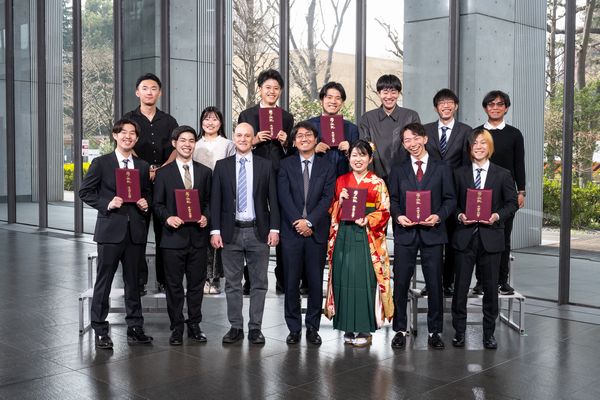研究内容 Our research
現地調査 Field survey
沿岸災害が発生した際には、その実態を解明するために、国内外の研究者とともにチームを組織して現地調査を行っています。
地形や津波・高潮の浸水痕跡高の計測、災害時の状況や避難行動や復旧・復興に関する住民・行政関係者への聞き取り調査・アンケート調査を行い、地域の特性を踏まえた災害実態の総合的な把握に取り組んでいます。
When a coastal disaster occurs, we organize teams with domestic and international researchers to conduct field surveys to elucidate the actual conditions.
We measure the topography and height of inundation traces of tsunamis and storm surges, and conduct interviews and questionnaires with residents and government officials regarding disaster conditions, evacuation behavior, and recovery and reconstruction, in order to gain a comprehensive understanding of the actual disaster conditions based on regional characteristics.
水理模型実験 Physical modelling
津波平面水槽(長さ9m、幅4m)と2次元造波水路(長さ14m、幅0.4m)を用いて、津波・高潮・高波襲来時の構造物周辺の流体運動や堤防や防波堤に作用する流体力に関するさまざまな実験を行っています。
津波平面水槽では、真空ポンプにより吸い上げた水塊を落下させることで津波を模擬した波を造れるようになっています。2次元造波水路では、規則波・不規則波・孤立波・一方向流を発生させることができ、さまざまな状況を再現することができるようになっています。
Using a tsunami wave basin (9 m long and 4 m wide) and a two-dimensional wave flume (14 m long and 0.4 m wide), we are conducting various experiments on fluid motion around structures and fluid forces acting on dykes and breakwaters during tsunami, storm surge, and high wave attacks.
In the tsunami wave basin, a vacuum pump is used to create waves that simulate tsunamis by sucking up and dropping a mass of water, and the two-dimensional wave flume can generate regular waves, irregular waves, solitary waves, and one-directional flow to simulate various conditions.
数値モデル Numerical modelling
2次元・3次元流体運動モデル、波浪モデル、気象モデル、海浜変形モデルなど、さまざまなオープンソースの数値モデルを駆使して、過去に起こった災害の再現計算を行いその詳細を明らかにしたり、将来に起こり得る災害の予測計算を行いどのような変化が現れるのかを探ったりしています。
特に、地球温暖化が進んだ状況下での風速場・気圧場を気象モデルを用いて作成し、それに基づいて現在から将来に向けて台風や高潮・高波がどのように変化するかについて解析を進めています。この方法は将来気候における洋上風力発電の期待発電量の推定にも応用しています。
We use a variety of open-source numerical models, including 2-D and 3-D fluid motion models, wave models, meteorological models, and beach deformation models, to reproduce past disasters and clarify their details, and to predict possible future disasters and explore what changes might appear.
In particular, we use meteorological models to create wind and pressure fields under global warming conditions, and analyze how typhoons, storm surges, and high waves will change from the present to the future based on the results. This method is also applied to the estimation of expected offshore wind power generation in the future climate.
避難行動支援 Evacuation action support
沿岸災害、特に津波災害の発生時には、津波の襲来をいち早く認知し、避難行動を開始することが非常に重要です。そのため、過去の災害事例をもとに何が避難のきっかけになったのかを分析しています。
エージェントシミュレーションの手法を用いて、実在の場所における避難所要時間や渋滞発生箇所などを推定し、津波からの避難の際の地域ごとの課題を抽出したり、最近は、ゲームエンジンであるUnityを用いて、シミュレーションされた避難行動を実在する建物や道路を含む3Dのバーチャル空間上で表現することにも取り組んだりしています。
In the event of a coastal disaster, especially a tsunami disaster, it is extremely important to recognize the arrival of a tsunami as soon as possible and initiate evacuation actions. Therefore, we analyze what triggered evacuation based on past disaster cases.
Using agent simulation techniques, we estimate the time required for evacuation in real places and the locations where traffic jams occur, and identify issues in each region when evacuating from a tsunami. Recently, we have been working on using Unity, a game engine, to represent the simulated evacuation behavior in a 3D virtual space that includes real buildings and roads.





